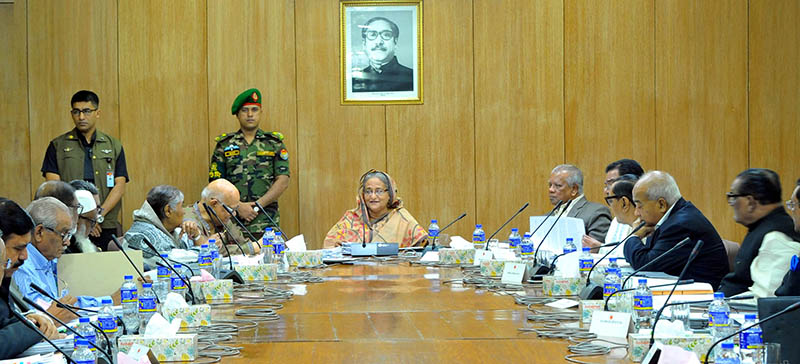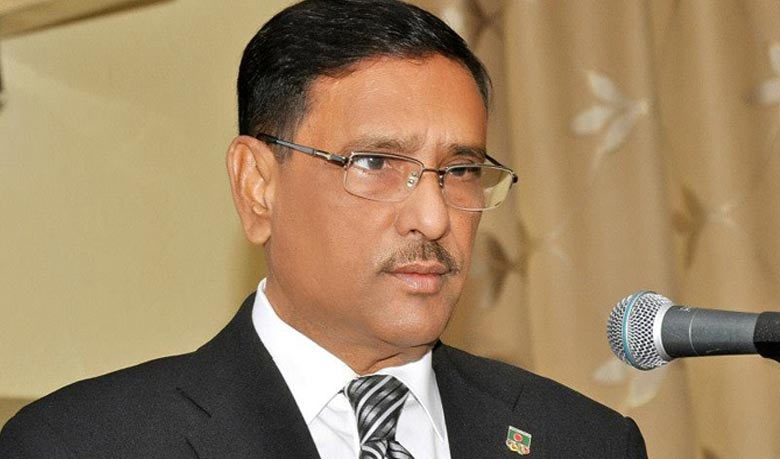
#thenewscompany – The Cabinet today approved the draft of a new law for planned uses of land with approval of concerned authorities as it held its weekly meeting with Prime Minister Sheikh Hasina in the chair. Briefing reporters after the meeting Cabinet Secretary M Shafiul Alam said the proposed law titled “the Nagor and Anchal Parikolpana Ain- 2017” (City and Area Planning Act, 2017) aimed at “brining discipline in the land management system and ensure planned use of land”.
He said the law proposed five years rigorous imprisonment and fine of maximum Taka 50 lakh fine for those who would be found to have violated any rules, plan or order under the law.
“Once the law is passed necessary clearance would be required for use of all public and private lands directly or indirectly related to urban and city development and land use management systems,” he said.
Alam said the law proposed constitution of a high-lever advisory council to give such clearances for land use while it would also be empowered to delegate the power to any specific authority for the purpose.
The advisory council, he said, would be headed by the housing and public works minister while it would primarily give policy support to the Urban Development Directorate and other regulatory bodies.
The proposed law alongside the advisory, sought to form an executive council (EC) as well with housing and public works secretary as chairman for conducting day to day functions related to issuance of such clearance.
“The EC will place proposal to the advisory council for approval and implement the decisions of the council,” the cabinet secretary said.
The cabinet today also approved drafts of three more acts, one agreement with India, a joint interpretative note on an agreement with India and a proposal to declare march 25 the Genocide Day as a ‘Category -A’ event.
The cabinet also cleared the draft of a revised policy of the ICT Ministry for increasing the donation for fellowship and innovative research in information and communication technology.
The draft of the other acts approved by the cabinet are: The Pesticides Act, 2017, The Textiles Act, 2017 and The Expatriate Welfare Board Act, 2017.
The cabinet approved the draft of an agreement between Bangladesh and India concerning to Orbit Frequency Coordination of South Asia Satellite proposed at 48?E.
India will launch the satellite and all SAARC countries would join its operation.
The satellite, however, would not create any barrier for Bangabandhu Satellite scheduled to be launched by Bangladesh later this year, the cabinet secretary said.
The Pesticide Act, 2017 has been formulated in Bangla through translating the previous ‘Pesticide Ordinance-1971’ and subsequent amendments in 2007 and 2009, Alam said adding that there was no major change in the new law except in the section of punishment for its violation.
The penalty clause proposed Taka 50,000 fine or in default one year imprisonment for selling, or opening of boxes for selling, or storing or advertisement of any substandard pesticide or pesticides without registration for the first time.
In case of repetition of such offence, the law proposed minimum Taka one lakh and maximum Taka two lakh fines or in default two years imprisonment.
The cabinet secretary said the purpose of the Textile Act, 2017 is to take back the factories which were privatized or sold under the privatization policy of the government in case of violation of the condition of the sale agreement by the buyer.
Under the law, the entrepreneurs of such units would need to obtain license from Textile Directorate for establishment of any textile or garment industry.
Concerned authorized officers would have to power to collect sample from market and verify the standard of any imported textile materials including colour and chemical.
The Expatriate Welfare Board Act has been formulated in light of the UN Convention on the Protection of the Rights of All Migrant Workers and Members of their Families, 1990 to ensure welfare of the expatriate workers and and their family members and safeguard their rights.
The law has been framed out of obligation as the signatory of the convention; the cabinet secretary said adding that so far the tasks were done by a rule framed in 2002.
Under the law a new board namely “Expatriate Welfare Board” would be constituted which would set up “briefing centers” for migrant workers, extend support to the workers and take mid and long-term projects for taking programmes for welfare of the workers.
The board, to be headed by the secretary of the expatriate welfare ministry, would be responsible for bringing back home migrant workers bodies, staging their funerals and giving financial support in this purpose.
The board would also work for bringing back the sick, physically injured workers to home, rescue the endangered women workers and resolve their problems abroad. At the very onset of the meeting the cabinet adopted a resolution congratulating the players, officials and coaches of Bangladesh National Cricket Team on their victory in its 100th text match against Sri Lanka.






































